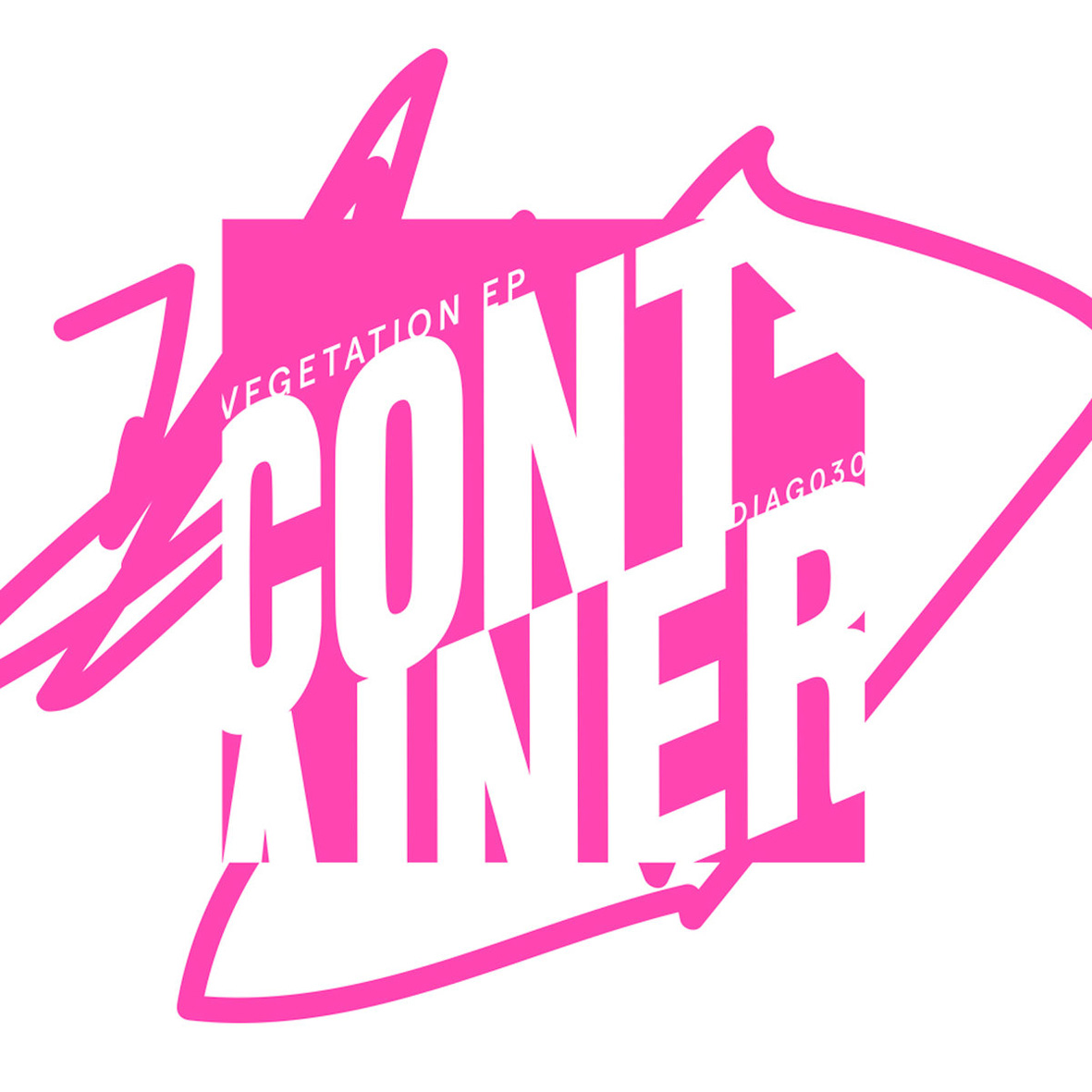
Ren Schofield’s reliably bludgeoning Container project is back with a yet another EP of caustic, pummeling beats and squelching, swooping electronics.  He has moved to a new label (Powell’s Diagonal imprint) since his last outing, but otherwise not a whole lot has changed: Vegetation is yet another feast of concise and bulldozing rhythmic salvos.  That is no surprise, of course, as Container has always been the absolute embodiment of the "all killer, no filler" philosophy: Schofield gets in, he kicks ass, and he is gone long before he overstays his welcome.  That said, Container does seem to get incrementally better and better with each release and that trend continues, as Vegetation tempers Container's percussive assault with a bit more dynamic variation and sputtering, squiggling electronic chaos than usual.
In characteristic fashion, Vegetation starts barreling along right out of the gate with the title piece.  Unlike some other former noise artists who have made similar transitions into beat-based music, however, Schofield's beats are not particularly heavy nor are they especially satisfying in their own right.  Rather, the drum patterns on Vegetation seem to exist primarily to provide an unrelenting forward momentum.  It is almost like Container appropriated Neu's motorik rhythms, then willfully set out to make them too fast, too muscular, and too unpredictable.  In any case, they serve their purpose just fine, but the real show is generally what Schofield is doing around those beats.  In "Vegetation," for example, there is an obsessively repeating siren-like sound in the foreground that gives the piece its shape and immediate character, but it is the masterfully juggled host of clicking rhythms, bass throbs, cymbal washes, caustic noises, and field recordings deeper in the mix that cumulatively evoke such an uncomfortably unstoppable and escalating tension.  In essence, Container's grooves are not the meal, they are merely the tray in which the main courses (increasing tension and small-scale dynamic pyrotechnics) are presented.
Schofield’s ostensibly simple template, limited palette, and gleefully single-minded intent seem like a perfect recipe for getting backed into a creative corner and running out of fresh ideas, but Container seems to be somehow thriving and evolving wonderfully within that niche.  I never find myself wishing Schofield would conjure up a melody or two, slow down a bit, whip up a cool bass line, or throw in some trippy dub touches, as each song on Vegetation is abolutely perfect in its blunt yet meticulously engineered simplicity, like an expensive, well-crafted knife.  Also, it helps a lot that Schofield is intuitively aware of the fundamental limitations of his aesthetic and presents it accordingly: while I enjoy his albums quite a bit, an EP is probably the perfect amount of Container.  Five three- or four-minute doses of flawlessly orchestrated techno-violence seem just about right to ensure that each piece is distinctive and makes a maximum impact.  Vegetation leaves no time for numbness to set in.  That said, however, I did love the divergent and comparatively restrained "Funnel," as Schofield periodically lets the beat fall away to make room for some wonderfully sputtering and squiggling electronic weirdness.  As if to compensate, however, he amusingly doubled down on the intensity for the following "Radiator," unleashing a visceral eruption of crash cymbals and white noise.
If Vegetation has a flaw, it is only that Container is such a mercilessly kinetic and visceral project that it feels weird and vaguely inappropriate listening to this EP at home.  That is inherently true of a lot of great techno music though, as what sounds amazing in a sweaty warehouse full of churning and undulating bodies at 3am rarely translates into the perfect soundtrack for my living room.  This would definitely be a great soundtrack for reckless driving though, particularly in a ruined, post-apocalyptic industrial landscape (if one happens to be available).  In any case, finding the right context for Container's artistry is my problem–Schofield has unquestionably handled his part of the artist/listener equation quite brilliantly: this project seems to only get more and more chiseled and tightly wound with each new release.
 
Read More

